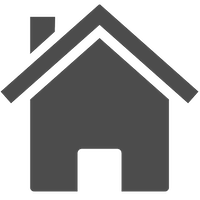Let's talk about
Abuse
For Students in Grades K-6
Did You Know...
Children who have a strong relationship with at least one parent or another trusted adult are more likely to be successful, have healthy habits, and stay safe. We want you to be safe, and we want you to identify safe adults in your life who will be there for you and want to help you be healthy, safe, and well.
Even though it is your family and the school’s “job” to protect you, there are things you can do to help yourself too.
Most family and friends keep each other safe, but not every adult or friend is safe. Even some people you meet online are unsafe.
Anytime you are gaming with friends, or using your phone, or posting on social media you must be very careful. Strangers may be a threat, but sometimes people you already know may also be unsafe.
This can be a very scary thought. Instead of worrying about scary things, try to think about actions that you could do to take better care of yourself and others. Read the list below for important safety tips.
Things to know & do
Trust your instincts
This means if something doesn’t feel right, it probably isn’t right.
If you are worried or feel unsafe, talk to one of your trusted Go-To Adults.
Your body is your own.
Know your boundaries and respect the boundaries of others. People should keep their hands to themselves when around you.
You can say “No” to friends or adults when something makes you feel scared or is not safe.
When posting online:
Do not put personal information such as your address, school, family names, or dates and places you will be visiting. Privacy is important for safety.
Keep all passwords protected. Do not share them with your friends.
Your “Friends” on social media should only be people you know in person.
Never post pictures not approved by your parent.
Trust your instincts
This means if something doesn’t feel right, it probably isn’t right.
If you are worried or feel unsafe, talk to one of your trusted Go-To Adults.
Your body is your own.
Know your boundaries and respect the boundaries of others. People should keep their hands to themselves when around you.
You can say “No” to friends or adults when something makes you feel scared or is not safe.
When posting online:
Do not put personal information such as your address, school, family names, or dates and places you will be visiting. Privacy is important for safety.
Keep all passwords protected. Do not share them with your friends.
Your “Friends” on social media should only be people you know in person.
Never post pictures not approved by your parent.




